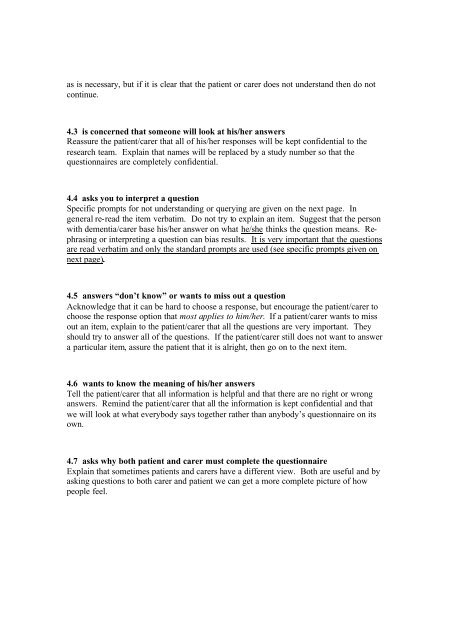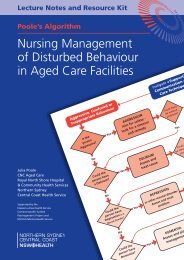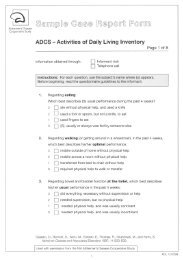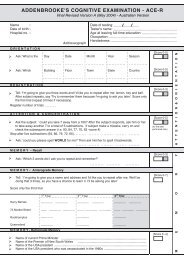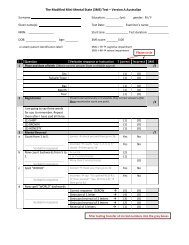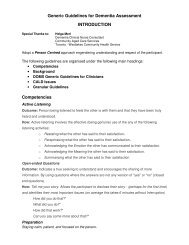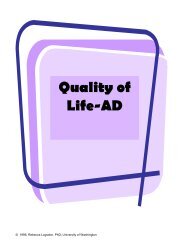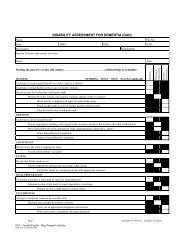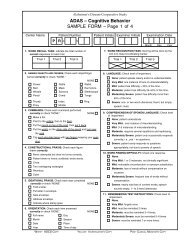DEMQOL And DEMQOL-Proxy – Interviewer Manual Instructions For
DEMQOL And DEMQOL-Proxy – Interviewer Manual Instructions For
DEMQOL And DEMQOL-Proxy – Interviewer Manual Instructions For
Create successful ePaper yourself
Turn your PDF publications into a flip-book with our unique Google optimized e-Paper software.
as is necessary, but if it is clear that the patient or carer does not understand then do not<br />
continue.<br />
4.3 is concerned that someone will look at his/her answers<br />
Reassure the patient/carer that all of his/her responses will be kept confidential to the<br />
research team. Explain that names will be replaced by a study number so that the<br />
questionnaires are completely confidential.<br />
4.4 asks you to interpret a question<br />
Specific prompts for not understanding or querying are given on the next page. In<br />
general re-read the item verbatim. Do not try to explain an item. Suggest that the person<br />
with dementia/carer base his/her answer on what he/she thinks the question means. Rephrasing<br />
or interpreting a question can bias results. It is very important that the questions<br />
are read verbatim and only the standard prompts are used (see specific prompts given on<br />
next page).<br />
4.5 answers “don’t know” or wants to miss out a question<br />
Acknowledge that it can be hard to choose a response, but encourage the patient/carer to<br />
choose the response option that most applies to him/her. If a patient/carer wants to miss<br />
out an item, explain to the patient/carer that all the questions are very important. They<br />
should try to answer all of the questions. If the patient/carer still does not want to answer<br />
a particular item, assure the patient that it is alright, then go on to the next item.<br />
4.6 wants to know the meaning of his/her answers<br />
Tell the patient/carer that all information is helpful and that there are no right or wrong<br />
answers. Remind the patient/carer that all the information is kept confidential and that<br />
we will look at what everybody says together rather than anybody’s questionnaire on its<br />
own.<br />
4.7 asks why both patient and carer must complete the questionnaire<br />
Explain that sometimes patients and carers have a different view. Both are useful and by<br />
asking questions to both carer and patient we can get a more complete picture of how<br />
people feel.


